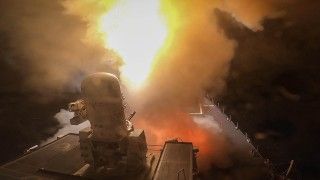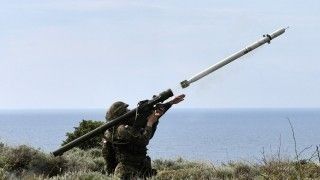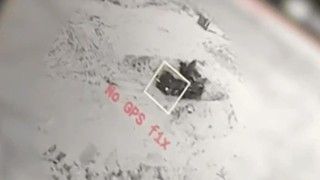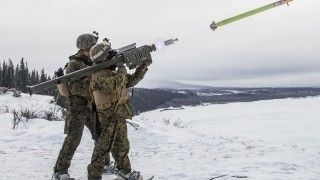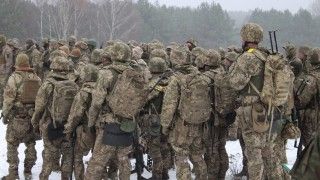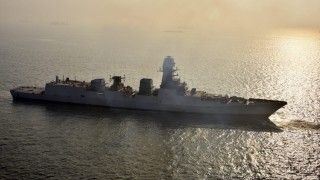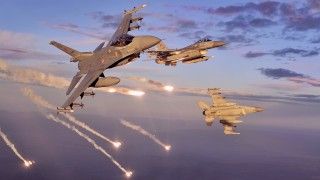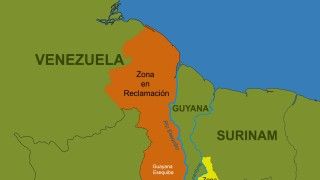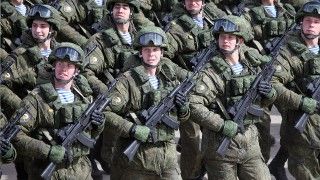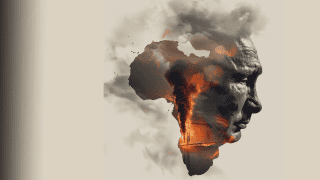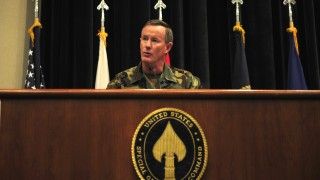- ANALIZA
- KOMENTARZ
- OPINIA
- WIADOMOŚCI
Is Israel ready to militarily confront with Hezbollah terrorists? [COMMENT]
Are we dealing with exerting strategic psychological pressure on terrorists from Hezbollah and Iran, or maybe a real scenario of developing another Middle Eastern front? This fundamental question has arisen in recent events in connection with signals coming from Israel that a crackdown on a terrorist organization residing in Lebanon, on the northern borders of the Israeli state, is not ruled out.
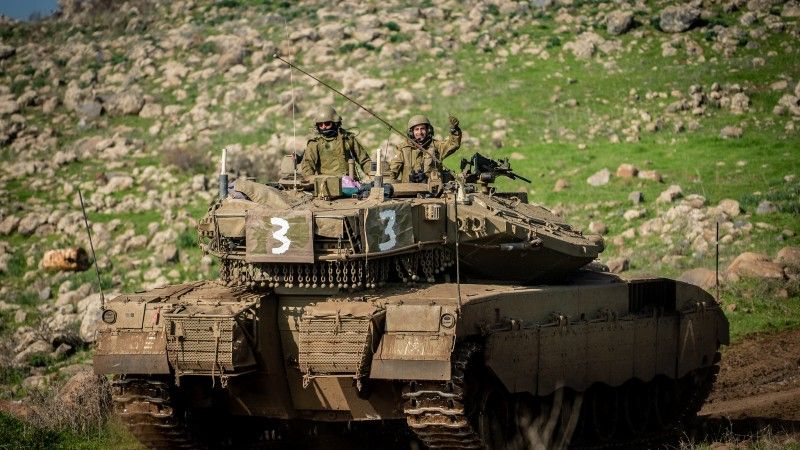
IDF is ready to fight against Hezbollah
Gen. Herzl „Herzi” Halevi, the Chief of the General Staff of the Israel Defense Forces (IDF), allegedly told his soldiers fighting Hamas in Gaza that their actions show that the Israeli military can, if necessary, also fight Hezbollah in Lebanon, regardless of attempts to fortify areas of Lebanese territory by terrorists. IDF can also fight terrorists, accumulating its resources in urban areas where it is difficult to conduct military operations. This type of statement, but also other visible elements of a potential escalation on Israel’s northern border (rocket and artillery fire and air strikes), opens the ongoing discussion about the possibility of a more significant IDF strike at terrorists residing in Lebanon as well. Especially since the Israeli medical facilities in the northern part of the country are also expected to start preparing to deal with a possible major crisis (many injured, problems with supplies, etc.).
Wherein we should take into account that some of this type of media coverage is a form of a psychological operation aimed at Hezbollah and Iran. But at the same time, we must not forget about the dynamics of Middle Eastern events, which have proven many times that even the least acceptable scenarios can be implemented by state and non-state entities (e.g., the terrorist Hamas).
Israel's northern border is still under attack
In the current Middle Eastern reality mentioned above (and not only in it), questions are increasingly being asked whether Israel will not want to carry out a more extensive military operation in Lebanon after the contractual defeat of Hamas in the Gaza Strip. However, we must clarify that its target would not be the Lebanese state. Still, it would be a military operation aimed at a terrorist organization other than Hamas, i.e., Hezbollah, especially since it has become embedded in the fabric of this country and poses a real threat to regional and international security. Hezbollah has significant paramilitary resources and the ability to obtain military assistance from the Iranian side (primarily via the IRGC Islamic Revolutionary Guard Corps). And it is a non-state entity that has also actively engaged in activities in other countries in the region. Hezbollah was, among others, an essential actor if the Syrian dictator stayed in power. Moreover, even the presence of UN forces (UNIFIL mission) did not guarantee a reduction in Hezbollah’s ability to build its offensive potential against the state of Israel.

Already, while Israeli troops are focusing on fighting Hamas, there are constant exchanges of fire and attacks on the border between Israel and Lebanon. Examples include the firing of anti-tank-guided missile systems against the military and intelligence facilities of IDF, as well as Israel’s retaliatory actions (from air strikes to artillery and secret operations). It is still noted that Hezbollah has not entered the conflict with Israel on a full scale, which was expected after the Hamas terrorist attacks of October 7, 2023, and the beginning of the armed response of IDF and the Israeli secret services (Aman/Shabak) in Gaza (also partly in the West Bank).
It is a significant threat primarily due to Hezbollah’s missile resources, which have been repeatedly described and analyzed in Defence24. This terrorist organization can carry out strikes on key targets in Israel, as well as perform them in a saturation model. And most importantly, on a much larger scale than in the case of Hamas terrorists. It is facilitated by the fact that there is free space for paramilitary activity on the territory of Lebanon, the ease of transport routes from Iran - especially if we are thinking about using the Iranian presence in Syria, and, in a sense, ignoring the threat from Hezbollah in the international context.
Moreover, in addition to missile systems, Hezbollah is becoming increasingly active (analogously to Yemen’s Houthis ) in unmanned aerial systems, and a significant arsenal of this technology, in this case, should be assumed. Naturally, it is a derivative of the proliferation of Iranian weapons systems, which today constitute a threat in the Middle East but also constitute an element of Iranian assistance for Russian aggression against Ukraine (Europe). It is also essential to take into account the possibility of developing Hezbollah’s EW resources (electronic warfare) based on Iranian and Russian technologies, especially since the Russians are active in Syria in this field.
Hezbollah and the Houthis may disrupt shipping routes
When we analyze the current challenges for world security in the case of Yemen, we must remember that Hezbollah, in a way, paved the way for equipping terrorist organizations with anti-ship missiles. In 2006, the Israeli ship INS Hanit was struck by a C-701 anti-ship missile from Hezbollah’s arsenal. In general, Hezbollah is highly likely to become sooner or later capable of carrying out attacks using unmanned aerial vehicles or, like the Houthis, in the form of combined UAV-USV and anti-ship missiles. There is also an all threads relating to the training of naval units of combat divers of this terrorist organization. And all this is happening in the context of the sensitive Eastern Mediterranean and its natural resources.
We need to mention that Hezbollah should be considered in the context of its growing capabilities to operate in the cyber domain. Hezbollah has so far been responsible for a variety of threats to Israeli cybersecurity, including data harvesting activities. In general, we should remember that the Hezbollah- Houthi models (with all their local influences) are a complex attempt to implement not only Iran’s network of indirect actors (proxy ) in the region but also something like the Iranian version of the anti-access bubble (A2/AD). Hence, both structures - the Houthis and Hezbollah - are armed in different domains and are intended to increase the range of destruction of their arsenal (missiles, UAVs, etc.). However, both structures require caution in building a narrative about their complete control by Iran, but one should not avoid the statement about their dependence on Iranian support.

As the case of Hamas and now also the Houthis clearly shows, conventional forgetting of such non-state actors can lead to downright catastrophic consequences for the security of not only one state but also entire regions or even the world. In this case, Hezbollah is a terrorist organization that quite easily misleads or tries to mislead debates about terrorism in the world. Unfortunately, in some debates about Hezbollah, we can note that factors such as „the legal, political presence in the Lebanese political scene” and „the social or even humanitarian side of activity in Lebanon” are emphasized.
When we think about the division of the political-social actions of Hezbollah from military activity, the leading cause is the psyops blurring of critical aspects of Hezbollah’s activity, which go far beyond Lebanon. First of all, no matter what you say, Hezbollah still ideologically negates Israel and positions itself as an aggressor toward a UN member state. This form of narrative aggression translates into continuing operational activities in the terrorist dimension. Here, we can see a broad spectrum of activity - building our terrorist capabilities in terms of human resources, equipment, and tactics; supporting other terrorist organizations operating in the region through a network of political relations; and providing logistic and infrastructure support.
Hamas tunnels and Hezbollah tunnels
Let’s look at a topic such as the currently analyzed Hamas tunnels. Hezbollah was also many times caught building tunnels to infiltrate the border and ultimately transfer terrorists to Israeli towns. Therefore, we must assume a hypothesis that Hezbollah’s plans are consistent with those of Hamas, and if the infiltration of Israeli territory was successful, we would see not only actions against IDF or other uniformed formations (police or border guard) but also (mainly) the civilian population of the borderland. We must also not forget that this also applies to the space of propaganda, spreading radicalization, including among minors.
The case of international leniency towards similar actions by Hamas highlights the long-term consequences after the attacks of October 7, 2023. Being brought up under constant propaganda pressure, indoctrination, and radicalization promotes brutality and makes it impossible to seek any paths to diplomatic and political agreement. Hezbollah is also capable of conducting terrorist activities outside Lebanon or even the Middle East, which has been repeatedly demonstrated, e.g., in Europe, by the dismantled terrorist plots of this terrorist organization.

We should emphasize that Hezbollah, unlike other terrorist organizations operating regionally and globally, adopts a structure of activities similar to that of states. Its plots are created systemically, based on its resources, control (C2), and planning (probably in cooperation with the state entities with which it cooperates and their agencies, such as the Ghods Forces from Iran). In contrast, Al-Qaeda, or, currently, primarily, the so-called Islamic State (Daish), where terrorist commanders focus on mobilizing radicals, indoctrinating them, and showing them the ability to carry out terrorist attacks. For this reason, Hezbollah terrorism is more difficult to map in terms of the possible effects of attacks (professionalism of staff and support), but also easier to track through intelligence capabilities in the area of command, control, and communications of this terrorist organization.
See also

Hezbollah is destroying Lebanon from the inside
Finally, it is now highly problematic to ignore the negative socio-political-economic consequences of Hezbollah’s activity towards Lebanon itself. Terrorists are responsible for the illegal duplication of the institutions of a sovereign state in such strategic areas as military power or the ability to control citizens. We should emphasize that Hezbollah has intelligence and counterintelligence structures alternative to the Lebanese state. Hezbollah, similarly to Hamas, is also creating its infrastructure - material bases, command centers, and training bases, often in urban areas and using the presence of public facilities, including schools and places of religious culture. In the economic space, Hezbollah’s leaders must be recognized as a problem with the transparency of the Lebanese economic system. It is not even to mention the possibility of Hezbollah’s participation in illegal enterprises while generating enormous profits for terrorists. It is, of course, about smuggling contraband and, above all, the possibility of participating in the drug business for which Lebanon has long been famous.
One may get the impression that many of the debates about the critical role of Hezbollah in the Lebanese socio-political space ignore the indicated other face of this organization. Moreover, when talking about Lebanon’s development problems and threats to its inhabitants, we forget about Hezbollah’s long-term policy, which is aimed at doubling the state and undermining its ultimate agency, from pursuing its Hezbollah (Iran) policy towards Israel to weakening the ministries of power and the Lebanese army. The Houthis occupy part of Yemen, and in the case of Hezbollah, we can say that this organization has de facto taken the state as a human shield (not only when it comes to physically controlled spaces). It should also be mentioned that Hezbollah was (also recently) responsible for several incidents regarding the international UNIFIL mission (emphasizing that Polish soldiers are also currently serving there). For example, forcing a column of vehicles to drive over the spread flags of Israel and the USA. It also favors the antagonization of civilian attitudes towards UNIFIL.
Is there a "window" of possibility for an armed crackdown on Hezbollah?
Regardless of the specific international situation, a potential attempt to deal with Hezbollah militarily would be considered an Israeli escalation in the region, primarily since it would naturally involve questions about the reaction of Iran or even Syria and would naturally be met with criticism (at least officially from many UN member states). However, from Israel’s perspective, there is probably a question of whether there is not a specific window towards such a solution now, regardless of the foreign assessments mentioned above. First of all, IDF is now highly mobilized, and many elements of the functioning of the state have been switched to a mode of resilience in a state of war. Giving more flexibility to those in power and, above all, commanders to at least consider dealing with one of the strategic threats on Israel’s northern borders. It should be recalled that in 2006, there was an attempt to attack Hezbollah’s resources using Israel’s significant military potential. However, the effects of the war at that time cannot be considered a military-political success for the Israeli side; on the contrary, many authors define it as even the first war lost by the IDF.

However, since then, Israel has not hidden that it has made many changes in the way it thinks about the threats posed by terrorists peacefully residing in entire areas of Lebanon. It includes defense preparation (further military reforms, but mainly numerous changes in training and, above all, what we see now in Gaza, i.e., a different approach to the synergy of fighting troops and intelligence base), but also obtaining new combat capabilities, which can provide more battle efficiency against the areas of Hezbollah’s most significant consolidation of forces and resources.
See also

It should also be recognized that current activities in Gaza create a significant collection of lessons learned and intelligence gains, which also translates into the ability to fight Hezbollah. However, doubts arise from two directions: practical (material and equipment reserves, especially after the long campaign against Hamas terrorists) and strategic (Iran’s reaction is complicated to determine and the possibility of an open armed conflict breaking out). The response of Israeli society to the possibility of another war breaking out also remains an open question, especially considering the still crucial historical background of the 20th century operations of Cahal troops in Lebanon (including not only Operation Peace for Galilee). Moreover, we must not forget about the complicated system of political relations in Israel itself, which preceded the war with Hamas terrorists.
Moreover, Israel’s position is currently complicated by the state of the political debate in the US, where, for example, Democratic deputies in Congress are demanding that the White House stop activities in the field of military aid, which bypasses the parliament’s control function. Let us also note that the Americans are currently concerned about their ability to position themselves militarily against Iranian threats - this is the Red Sea, the Gulf, the Strait of Hormuz, but also Syria and Iraq. Not to mention American bases in allied countries in the Middle East and relations with the Kingdom of Saudi Arabia, the UAE, Bahrain, Kuwait, and Turkey (the game with this country is about Sweden’s accession to NATO).
It is an operational problem now and a strategic problem for the future

Returning to Israel’s issues itself, it should be recognized that after the terrorist attack by Hamas (October 7, 2023), there must have been a particular change in thinking about terrorist threats, which have so far been de facto stabilized by continuous point attacks (military and intelligence), while at the same time deterred. Hezbollah is a strategic problem for the Israeli state, and it is not surprising that the authorities, army, and services in the current situation will also be preparing for violent solutions. All this is to prevent another operational surprise and, what’s more, to avoid a war of attrition, e.g., from the missile threat from Hezbollah terrorists. Figuratively, it cannot be assumed that IDF, in the current reality, can afford the lack of strategic reflection when Hezbollah is not only taking sovereign Lebanon as a hostage (de facto pursuing its policy) but also blackmailing the entire Israel.
Therefore, it should be recognized that an armed confrontation with Hezbollah is, unfortunately, highly probable (in the short term), especially if terrorists continue to develop their military resources based on supplies from Iran and spread a protective umbrella over other terrorist organizations. Avoiding a violent solution would require, first of all, a radical change in the way we look at Hezbollah in the context of its presence in Lebanon. If it is to be a strictly political force, no military resources should be accepted, especially in Lebanon’s current conditions. Moreover, there cannot be a situation where entire areas of Lebanese territory remain outside the authority of the state, its army, and police, and Hezbollah can conduct its internal policy there and involve Lebanon in subsequent crises. Until Hezbollah changes noticeably (e.g., FARC’s path in Colombia), the biggest mistake will be to try to divide Hezbollah into different sectors of its activity. Without a stable Lebanon and a strong state with a strong apparatus, including the ministries of defense and internal security, the Middle East will struggle with many threats.













